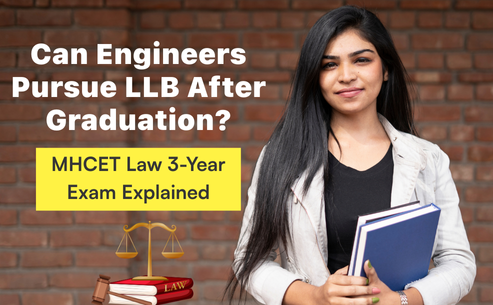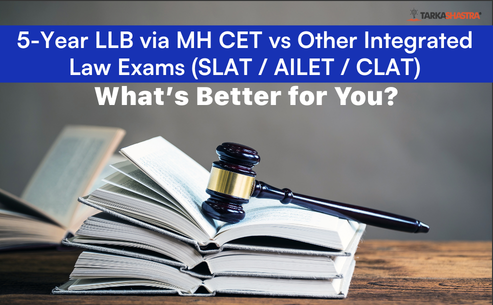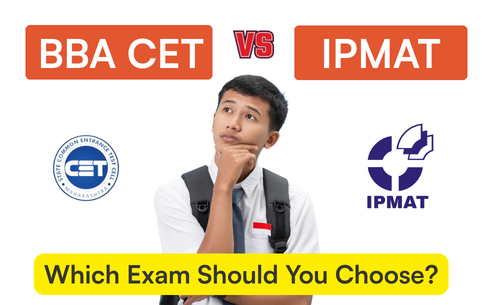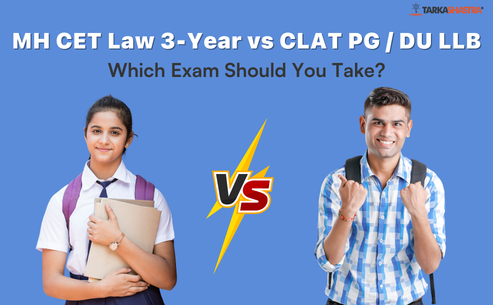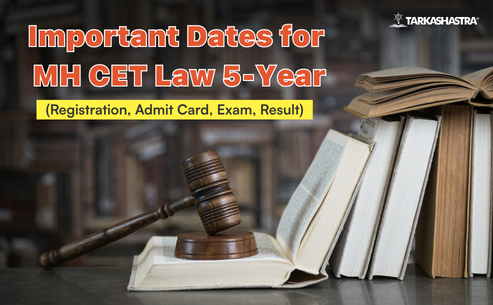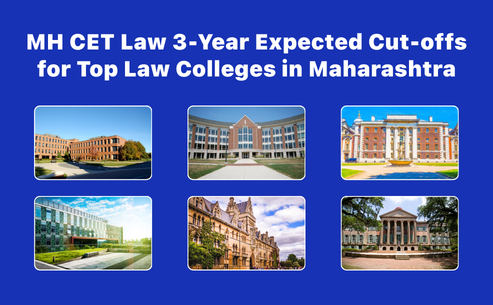In recent years, a growing number of engineers have chosen to swap drafting boards and coding screens for courtrooms and legal briefs. This shift isn’t just a passing trend — it reflects the rising importance of law in technology, business, and innovation. From Intellectual Property Rights (IPR) to cyber law and corporate compliance, engineers are finding exciting opportunities in the legal world.
If you’ve completed your B.Tech or BE and are considering pursuing an LLB after graduation, the MH CET Law 3-Year exam is your gateway to some of the top law colleges in Maharashtra, including Government Law College (GLC) Mumbai, ILS Pune, and other prestigious institutions.
Here’s why this topic matters for engineers:
| Reason | Why It’s Relevant |
| Demand for Tech-Law Professionals | Industries like IT, telecom, manufacturing, and pharmaceuticals need lawyers who understand both technology and law. |
| High-Growth Legal Fields | Patent law, data privacy, environmental compliance, and cybercrime are expanding career domains. |
| Career Diversification | LLB adds legal expertise to your technical background, creating opportunities in corporate law, consultancy, or litigation. |
| Gateway to Judiciary & Public Sector | An LLB also opens doors to judicial services, PSU legal departments, and government advisory roles. |
In this blog, we’ll answer the key question — “Can engineers pursue LLB after graduation?” — and break down the MH CET Law 3-Year exam in detail. You’ll learn about eligibility, exam pattern, syllabus, preparation strategies, and the career advantages of combining an engineering background with a law degree
Can Engineers Pursue LLB After Graduation?
The short answer is YES — if you are an engineer with a B.Tech or BE degree from a recognized university, you are fully eligible to pursue LLB through the MH CET Law 3-Year exam. The eligibility criteria for the 3-year LLB program are stream-neutral, meaning graduates from any academic background — science, commerce, arts, or engineering — can apply.
1. Eligibility Clarification
- Degree Requirement: Must have completed a bachelor’s degree in engineering (or any equivalent technical degree) from a recognized university.
- Minimum Marks:
- General Category – Minimum 45% aggregate in graduation.
- OBC / SBC / VJNT (Maharashtra State) – Minimum 42% aggregate.
- SC / ST (Maharashtra State) – Minimum 40% aggregate.
- Final-Year Engineers: Students in the final semester/year of their B.Tech/BE are eligible to apply, provided they submit proof of passing before the admission deadline.
- Age Limit: As per the latest CET Cell guidelines, there is no upper age limit for admission to the 3-year LLB program.
| Category | Minimum Aggregate in Graduation | Eligible Engineering Degrees |
| General | 45% | B.Tech, BE (any specialization) |
| OBC/SBC/VJNT | 42% | B.Tech, BE (any specialization) |
| SC/ST | 40% | B.Tech, BE (any specialization) |
2. Why Engineers Are Well-Suited for Law
Engineering graduates already possess skills that are valuable in the legal profession:
- Analytical Problem-Solving – Useful in case analysis, legal reasoning, and interpreting statutes.
- Attention to Detail – Critical for drafting contracts, patents, and legal documents.
- Technical Knowledge – Gives an edge in specialized areas like Intellectual Property Law, Cybersecurity Law, and Environmental Law.
3. Career Possibilities Post-LLB for Engineers
Pursuing law after engineering opens multiple career tracks:
| Specialisation | Career Scope for Engineers |
| Corporate Law | Legal roles in MNCs, contract negotiation, compliance management. |
| Intellectual Property Rights (IPR) | Patent drafting, trademark disputes, technology licensing. |
| Cyber Law & Data Privacy | Advisory roles for IT companies, cybercrime investigation, compliance with data laws. |
| Environmental & Energy Law | Legal advisory for renewable energy projects, industrial compliance. |
| Litigation & Judiciary | Civil, criminal, corporate litigation, or judicial services exams. |
With the eligibility clearly established, the next step is to understand how the MH CET Law 3-Year exam works for engineers aiming to transition into law.
Overview of the MH CET Law 3-Year Exam
The MH CET Law 3-Year exam is a state-level entrance test conducted by the State Common Entrance Test Cell, Maharashtra, for admission into 3-year LLB programs across law colleges in Maharashtra.
For engineers looking to transition into law, this is the primary gateway to prestigious institutions like Government Law College (GLC) Mumbai, ILS Law College Pune, and over 180 other affiliated colleges.
1. Purpose of the Exam
- Designed for graduates from any stream, including engineering, to pursue a professional Bachelor of Laws (LLB) degree.
- Opens doors to corporate, litigation, judiciary, and policy-making careers.
2. Key Exam Highlights
| Feature | Details |
| Conducting Body | State Common Entrance Test Cell, Maharashtra |
| Exam Name | MH CET Law 3-Year |
| Level | State-Level |
| Mode | Online (Computer-Based Test) |
| Medium | English & Marathi |
| Total Questions | 120 (MCQs) |
| Total Marks | 120 |
| Duration | 2 Hours (120 Minutes) |
| Marking Scheme | +1 for correct answer, No negative marking |
| Frequency | Once a year |
| Participating Colleges | 180+ law colleges in Maharashtra |
| Seats Available | ~16,000+ seats across the state |
Why This Exam Matters for Engineers
- No Subject Barrier: Open to all graduates, including BE/B.Tech holders.
- High ROI: Top law colleges in Maharashtra offer strong placements in corporate legal teams and law firms.
- Specialisation Potential: Engineers can combine their technical expertise with legal knowledge to excel in IPR, technology law, or corporate compliance.
- Gateway to Judiciary & Public Sector: An LLB makes engineers eligible for judicial exams, PSU legal roles, and government advisory positions.
MH CET Law 3-Year Exam Eligibility for Engineers
If you have completed a B.Tech or BE degree, you’re already on the right track to applying for the MH CET Law 3-Year exam. The State CET Cell, Maharashtra, has kept the eligibility criteria stream-neutral, meaning graduates from any academic discipline — including engineering — can apply.
1. Educational Qualification
- Graduation Requirement: A bachelor’s degree in engineering (or equivalent technical degree) from a recognised university.
- Minimum Marks Criteria:
| Category | Minimum Aggregate in Graduation | Eligible Engineering Degrees |
| General | 45% | B.Tech, BE (any specialization) |
| OBC / SBC / VJNT | 42% | B.Tech, BE (any specialization) |
| SC / ST | 40% | B.Tech, BE (any specialization) |
2. Final-Year Engineering Students
- Students in the final semester/year of their B.Tech/BE program can also apply.
- Admission will be provisional until they submit proof of passing before the CET Cell’s deadline.
3. Age Limit
- As per the latest CET Cell guidelines, there is no upper age limit for applying to the 3-Year LLB program.
- This makes it an attractive option for working engineers and career changers.
4. Additional Points for Engineers
- No Subject Restrictions: Your engineering background does not limit you to specific specialisations in law — you can pursue corporate law, intellectual property, cyber law, litigation, etc.
- Stream Advantage: Engineers often excel in Logical & Analytical Reasoning due to their problem-solving training. They can leverage technical knowledge in areas like patent law and data protection.
Exam Pattern & Syllabus (3-Year LLB)
The MH CET Law 3-Year exam is designed to assess a candidate’s legal aptitude, general awareness, reasoning ability, and English proficiency. Engineers often find certain sections easier (like reasoning), but must also prepare thoroughly for legal and language-based parts.
1. Exam Pattern Overview
| Section | No. of Questions | Marks | Weightage |
| Legal Aptitude & Legal Reasoning | 24 | 24 | 20% |
| General Knowledge & Current Affairs | 32 | 32 | 26% |
| Logical & Analytical Reasoning | 24 | 24 | 20% |
| English | 40 | 40 | 33% |
| Total | 120 | 120 | 100% |
Exam Highlights:
- Mode: Online (Computer-Based Test)
- Duration: 2 Hours (120 minutes)
- Type: MCQs (Multiple Choice Questions)
- Marking Scheme: +1 for each correct answer, no negative marking
- Medium: English & Marathi
2. Detailed Syllabus
A. Legal Aptitude & Legal Reasoning
This section evaluates candidates’ interest in law, problem-solving abilities, and understanding of legal principles. Key topics include:
- Indian Constitution: Fundamental rights, duties, and governance structures.
- Bharatiya Nyay Sanhita (BNS): Offenses and punishments.
- Indian Contract Act: General principles of contracts.
- Family Law: Marriage, divorce, and succession.
- Law of Torts: Civil wrongs and liabilities.
- Legal Maxims and Terms: Important legal phrases and their meanings.
- Landmark Judgments: Significant case laws shaping Indian jurisprudence.
B. General Knowledge & Current Affairs
This section tests awareness of national and international events. Focus areas include:
- History: Ancient, medieval, and modern Indian history.
- Geography: Physical, social, and economic geography of India and the world.
- Economics: Basic economic principles and current economic scenarios.
- Science and Technology: Recent advancements and their applications.
- Environment and Ecology: Environmental issues and sustainable development.
- Politics: Indian polity, constitution, and political system.
- Sports: Major tournaments and achievements.
- Current Affairs: Events of national and international importance from the past year.
C. Logical & Analytical Reasoning
This section assesses the ability to identify patterns and logical links and rectify illogical arguments. Topics include:
- Syllogisms: Logical arguments and conclusions.
- Analogies: Identifying relationships between pairs.
- Coding-Decoding: Deciphering codes and patterns.
- Blood Relations: Understanding family relationships.
- Direction Sense: Determining directions based on given data.
- Seating Arrangements: Arranging individuals based on specific conditions.
- Series Completion: Identifying the next element in a sequence.
- Assumptions and Conclusions: Evaluating arguments and drawing inferences.
D. English Language
This section measures proficiency in English, focusing on:
- Vocabulary: Synonyms, antonyms, and analogies.
- Grammar: Sentence correction, tenses, and parts of speech.
- Comprehension: Understanding and interpreting written passages.
- Sentence Rearrangement: Organizing sentences to form coherent paragraphs.
- Idioms and Phrases: Common expressions and their meanings.
- One-Word Substitutions: Replacing phrases with single words.
3. Section-Wise Weightage Tips for Engineers
| Section | Why It Matters for Engineers | Preparation Focus |
| Legal Aptitude | New subject for most engineers | Learn concepts, practice principle-fact questions |
| GK & CA | Helps in scoring quick marks | Read newspapers, revise monthly capsules |
| Logical Reasoning | Usually a strength area | Focus on speed & accuracy |
| English | Highest weightage section | Practice RCs, grammar exercises, and legal vocabulary |
Why Engineers Should Consider Law – Career Advantages
An LLB degree after engineering is not just a career switch — it’s a strategic move that blends technical expertise with legal acumen, creating a highly sought-after professional profile. The intersection of technology, business, and law is expanding rapidly, offering engineers a unique edge in the legal industry.
1. High Demand in Emerging Legal Fields
- Tech-Law Professionals are in demand across IT, telecom, manufacturing, pharmaceuticals, and start-ups.
- The growing importance of data protection laws, AI regulation, and technology compliance means engineers-turned-lawyers have a competitive advantage.
2. Career Diversification & Stability
- An LLB diversifies your career path beyond engineering roles, making you eligible for corporate legal positions, litigation, consultancy, and policy-making.
- Law is a profession with long-term growth potential, independent of technology sector fluctuations.
3. Ideal for Intellectual Property & Patent Law
- Engineers understand technical details that are crucial in patent drafting, infringement cases, and technology licensing.
- They can bridge the gap between inventors and the legal system.
4. Opportunities in Cybersecurity & Data Privacy
- With cybercrime and data breaches on the rise, cyber law specialists are essential for compliance and litigation.
- Engineers can leverage their technical knowledge to advise corporations on IT regulations and data protection laws.
5. Role in Environmental & Energy Law
- Engineers with an LLB can work on environmental compliance for industries, renewable energy projects, and infrastructure development.
6. Pathway to Judiciary & Public Sector
- After LLB, engineers can appear for judicial services exams, join Public Sector Undertakings (PSUs) in legal roles, or work in government advisory positions.
7. Career Options Summary Table
| Specialisation | Scope for Engineers |
| Corporate Law | MNC legal teams, contract negotiation, compliance. |
| Intellectual Property Rights | Patents, trademarks, technology licensing. |
| Cyber Law & Data Privacy | IT compliance, cybercrime investigation. |
| Environmental & Energy Law | Renewable energy, industrial compliance. |
| Litigation & Judiciary | Civil, criminal, and corporate litigation. |
Preparation Strategy for MH CET Law 3-Year (For Engineers)
Engineers often have an edge in logical reasoning and analytical thinking. Still, the MH CET Law 3-Year exam also tests legal aptitude, English, and general awareness — areas that may be relatively new for them. A well-planned approach will help engineers convert their technical discipline into exam success.
1. Time Management for Working Professionals
- Full-Time Engineers: 2–3 hours/day focused preparation.
- Full-Time Aspirants: 4–5 hours/day, split into section-wise study and practice.
- Weekly Revision: Dedicate one day to revising legal concepts, vocabulary, and current affairs.
2. Subject-Wise Preparation Tips
| Section | Engineer’s Advantage | Focus Areas | Suggested Approach |
| Legal Aptitude & Reasoning | Analytical skills help in applying legal principles logically. | Constitution, Contract Act, Torts, BNS, legal maxims. | Read basic law concepts, then solve 15–20 principle-fact questions daily. |
| General Knowledge & Current Affairs | Usually a weaker area for engineers; needs consistent effort. | Legal current affairs, national/international news, static GK. | Read The Hindu/Indian Express daily; revise monthly GK capsules. |
| Logical & Analytical Reasoning | Strong due to engineering background. | Puzzles, series, blood relations, coding-decoding. | Practice timed sets; aim for 90–95% accuracy. |
| English | May vary — needs work if not from an English-medium background. | Grammar, comprehension, legal vocabulary. | Practice 3 RCs/week, work on grammar rules & idioms. |
3. Resource Recommendations
- Legal Aptitude: Legal Awareness & Legal Reasoning – A.P. Bhardwaj; Universal’s Guide to LL.B.
- GK/CA: Lucent’s GK, Manorama Yearbook, Tarkashastra Monthly GK PDFs.
- Reasoning: A Modern Approach to Logical Reasoning – R.S. Aggarwal.
- English: Word Power Made Easy – Norman Lewis, Wren & Martin’s Grammar.
4. Smart Study Tips for Engineers
- Leverage Logical Skills: Aim to finish reasoning sections quickly to save time for legal aptitude.
- Focus on New Subjects Early: Start legal aptitude and GK prep from Day 1.
- Use Mock Tests as a Learning Tool: Begin with one sectional mock/week, increase to full-length mocks in the last 2–3 months.
- Maintain an Error Log: Track mistakes in mocks and work on weak topics.
Step-by-Step Guide to Apply for MH CET Law 3-Year
The MH CET Law 3-Year application process is conducted online through the official State CET Cell, Maharashtra website. Here’s a detailed breakdown of the steps for engineers and other graduates to successfully register:
1. Visit the Official Website
- Go to cetcell.mahacet.org and select the MH CET Law 3-Year option from the list of entrance exams.
2. Click on “New Registration”
- Select the 3-Year LLB program and click “New Registration”.
- Read the information brochure carefully to understand eligibility, exam pattern, and dates.
3. Fill in Basic Details
- Name, date of birth, gender, category, and contact details.
- A valid email ID and mobile number are mandatory to receive OTPs and updates.
4. Create Login Credentials
- Choose a username and password.
- You’ll use these for all future logins.
5. Upload Required Documents
Make sure scanned copies meet the CET Cell’s size and format requirements:
| Document | Format | Size Limit |
| Passport-size Photograph | JPEG/JPG | 20–50 KB |
| Signature | JPEG/JPG | 10–20 KB |
| Graduation Marksheet (or Final Year Hall Ticket for appearing students) | PDF/JPG | ≤ 1 MB |
| Caste/Category Certificate (if applicable) | PDF/JPG | ≤ 1 MB |
| Domicile Certificate (if applicable) | PDF/JPG | ≤ 1 MB |
6. Enter Educational Details
- Graduation degree name, university, passing year, and marks obtained.
- For final-year engineers, select Appearing Candidate.
7. Pay the Application Fee
| Category | Fees |
| Open category, EWS candidates from Maharashtra state, Outside Maharashtra State (OMS) / All India Candidates belonging to all categories, and J&K Migrants candidates | Rs. 1000 |
| Backward Classes categories | Rs. 800 |
| Orphan and Transgender candidates | Rs. 800 |
- Payment through debit/credit card, net banking, or UPI.
8. Submit the Application
- Double-check details before clicking Final Submit.
- Save and print the confirmation page for reference.
9. Download Admit Card
- When released, log in to the portal and download your MH CET Law Admit Card.
- Check details like exam date, time, and test centre location.
10. Appear for the Exam
- Reach your test centre at least 60 minutes early.
- Carry your Admit Card and proof of a valid photo ID.
Career Path After Completing LLB for Engineers
Earning an LLB after engineering equips you with a rare and powerful skill set — combining technical expertise with legal proficiency. This dual background opens diverse and high-value career opportunities in corporate, litigation, government, and policy-making sectors.
1. Corporate Law
- Work as an in-house legal counsel for MNCs, start-ups, or manufacturing firms.
- Handle contracts, compliance, mergers & acquisitions, and corporate governance.
- Engineers excel here by combining industry-specific knowledge with legal compliance skills.
2. Intellectual Property Rights (IPR)
- Draft and file patent applications for innovations.
- Represent clients in patent infringement cases and technology licensing disputes.
- Ideal for engineers with backgrounds in IT, mechanical, electrical, biotech, or electronics.
3. Cyber Law & Data Privacy
- Advise companies on IT compliance, cybercrime laws, and data protection regulations.
- Assist in drafting data privacy policies and representing clients in cybercrime litigation.
- Growing demand due to increasing cyber threats and stricter data laws.
4. Environmental & Energy Law
- Legal advisory roles in renewable energy, industrial compliance, and environmental protection.
- Work with government bodies, NGOs, or corporate sustainability teams.
5. Litigation & Judiciary
- Appear in civil, criminal, and corporate cases as an advocate.
- Qualify for Judicial Services Exams to become a judge.
- Engineers with an LLB can also work as legal consultants for technical dispute cases.
6. Public Sector & Government Roles
- Join Public Sector Undertakings (PSUs) like ONGC, BHEL, or Indian Oil in legal departments.
- Opportunities in policy-making, law commissions, and government advisory boards.
7. Higher Education & Specialisation
- Pursue an LLM in Corporate Law, IPR, Technology Law, or Environmental Law.
- Combine law with management through an MBA in Legal Management or similar programs.
8. Career Options Summary Table
| Specialisation | Scope for Engineers |
| Corporate Law | MNC legal teams, contract negotiation, compliance. |
| Intellectual Property Rights | Patents, trademarks, technology licensing. |
| Cyber Law & Data Privacy | IT compliance, cybercrime investigation. |
| Environmental & Energy Law | Renewable energy, industrial compliance. |
| Litigation & Judiciary | Civil, criminal, corporate litigation. |
| Public Sector Legal Roles | PSUs, government legal advisory. |
Conclusion
For engineers seeking a career shift or diversification, pursuing an LLB through the MH CET Law 3-Year exam is a wise and future-ready choice. Your analytical skills, technical expertise, and structured problem-solving abilities give you a natural edge in several legal domains — from corporate law and intellectual property rights to cyber law and environmental compliance.
The journey from engineering to law is not just about switching fields — it’s about expanding your influence in industries where technology and law intersect. Whether your goal is to work in top corporate legal teams, represent clients in court, join the judiciary, or advise on public policy, the MH CET Law 3-Year exam opens doors to prestigious law colleges and, ultimately, to a rewarding and impactful career.
At Tarkashastra, we specialise in guiding professionals and graduates — including engineers — to crack the MH CET Law exam with confidence. From structured study plans and section-wise strategies to mock tests with detailed analysis, our mentorship ensures you’re not just prepared, but exam-ready.
If you’re ready to transform your career and combine the best of engineering logic with legal mastery, now is the time to start your MH CET Law 3-Year preparation.
Your next chapter begins here — let Tarkashastra be your guide.
Frequently Asked Questions (FAQs)
1. Can I pursue LLB after completing my B. Tech or BE?
Yes. Engineers with a B.Tech or BE degree from a recognised university are fully eligible to pursue LLB through the MH CET Law 3-Year exam. There are no restrictions based on academic stream.
2. Is there an age limit for engineers under the MH CET Law, which is 3 years?
No. As per the latest CET Cell guidelines, there is no upper age limit for admission to the 3-Year LLB program. This makes it ideal for working professionals and career changers.
3. What is the minimum graduation percentage required for engineers?
For the General category, you need at least 45% aggregate marks in graduation. OBC/SBC/VJNT candidates require 42%, while SC/ST candidates need a minimum of 40%.
4. Can final-year engineering students apply for MH CET Law 3-Year?
Yes. Final-year B.Tech or BE students can apply, but they must submit proof of passing their degree before the admission process deadline to confirm eligibility.
5. What is the exam pattern for MH CET Law 3-Year?
The exam consists of 120 MCQs divided into Legal Aptitude, General Knowledge, Logical Reasoning, and English. Each question carries 1 mark, with no negative marking.
6. Is the exam available in Marathi as well as English?
Yes. The MH CET Law 3-Year exam is conducted in both English and Marathi. However, most candidates prefer English for sections like Legal Aptitude and the English language.
7. Which section has the highest weightage in MH CET Law 3-Year?
The English section carries the highest weight, with 40 questions worth 40 marks. Strong performance here can significantly boost your overall score.
8. Is the MH CET Law 3-Year difficult for engineers?
The exam is not inherently difficult for engineers, but Legal Aptitude and GK might be unfamiliar. With focused preparation, engineers can leverage their logical skills to score well.
9. How long should an engineer prepare for the MH CET Law 3-Year?
A dedicated preparation period of 6 months is ideal. Working professionals can manage 2–3 hours daily, while full-time aspirants can aim for 4–5 hours per day.
10. Do engineers have an advantage in certain sections?
Yes. Engineers usually perform well in Logical & Analytical Reasoning due to their technical background, which involves problem-solving and pattern recognition.
11. What books are best for Legal Aptitude preparation?
Recommended books include Legal Awareness and Legal Reasoning by A.P. Bhardwaj and Universal’s Guide to LLB Entrance Exams. Also, refer to the bare acts for fundamental laws.
12. How should engineers prepare for General Knowledge & Current Affairs?
Read newspapers like The Hindu or The Indian Express daily, and revise monthly GK capsules. Focus on legal current affairs, government schemes, and landmark judgments.
13. Are there mock tests available for MH CET Law 3-Year?
Yes. Tarkashastra offers full-length mock tests and sectional tests designed to match the actual CET format, complete with detailed performance analysis.
14. Is there negative marking in MH CET Law 3-Year?
No. There is no negative marking, which means you should attempt all questions — making educated guesses when unsure can work in your favour.
15. What is the application fee for MH CET Law 3-Year?
The fee is ₹1000 for the General category and ₹800 for the reserved category candidates from Maharashtra. Payment can be made online via debit/credit card, net banking, or UPI.
16. Which law specialisations suit engineers the most?
Engineers often excel in Intellectual Property Rights, Cyber Law, Environmental Law, and Corporate Law due to their technical expertise and analytical mindset.
17. Can I pursue LLB while working as an engineer?
Yes, many colleges offer evening classes or flexible schedules, allowing working professionals to balance their jobs and legal studies effectively.
18. How many colleges accept MH CET Law 3-Year scores?
Over 180 law colleges in Maharashtra accept MH CET Law 3-Year scores, including prestigious institutions like GLC Mumbai and ILS Pune.
19. Does an LLB after engineering improve job prospects?
Yes. It opens opportunities in corporate law firms, in-house legal teams, PSUs, and roles that require both technical and legal expertise.
20. Can engineers become judges after LLB?
Yes. After completing LLB, engineers can appear for Judicial Services Exams, provided they meet the other eligibility criteria set by the respective states.
21. What is the duration of the LLB course after the MH CET Law 3-Year?
The course duration is 3 years, divided into six semesters, with subjects covering various branches of law.
22. Is English proficiency necessary for the exam?
Yes. English carries the highest marks, and strong proficiency will help in reading comprehension, vocabulary-based questions, and legal drafting.
23. How can engineers improve their Legal Aptitude?
Start with basic law principles, practice principle-fact questions, and learn common legal maxims. Consistent practice is key to improvement.
24. Are there government job opportunities after LLB for engineers?
Yes. Opportunities include PSU legal roles, law officer posts, and positions in regulatory bodies where technical and legal knowledge is valuable.
25. Why should I choose Tarkashastra for MH CET Law preparation?
Tarkashastra provides expert faculty, structured study material, personalised mentorship, and mock tests tailored to the CET format, ensuring you are fully exam-ready.

